Physics and MathematicsProgram
Graduate School of Mathematics

Program Overview
Master
 AWARD
AWARD
Master's Degree in Physics and Mathematics
 DURATION
DURATION
2Y
 SCHOOL(S)
SCHOOL(S)
Graduate School of Mathematics
Doctor
 AWARD
AWARD
PhD in Physics and Mathematics
 DURATION
DURATION
3Y
 SCHOOL(S)
SCHOOL(S)
Graduate School of Mathematics
Physics and Mathematics Program
Graduate School of Mathematics
Program Introduction
The Physics and Mathematics Graduate Program is jointly promoted by the Graduate School of Science and the Graduate School of Mathematics at Nagoya University. It integrates education and research across physics, mathematics, and geophysics, with participation from the Department of Physics and the Solar-Terrestrial Environment Laboratory.
The Graduate School of Mathematics offers rich and diverse research opportunities across a broad spectrum of fields, including number theory, algebra, topology, geometry, analysis, mathematical physics, quantum information, cryptography, graph and knot theory, theoretical computer science, dynamical systems, mathematical biology, general relativity, cosmology, statistical and fluid mechanics.
Take a look at the List of Available Research Groups below to see the full list of available research topics. Full description of the of the research topics by faculty member is available on the web site of the Graduate School of Mathematics.
List of Key Research Topics
Combinatorial-, Analytic Number-, Algebraic Number-, Homotopy-, Elementary Particle-, Information-, Representation-, Type-, Graph-, Probability-, Quantum Information Theory / Operator Algebras / Partial Differential Equations / Differential Equations / Commutative-, Non-Commutative, Non-Associative Algebra / Mathematical Physics / Mathematical Biology / Topology / General Relativity / Cosmology / Algebraic Topology / Statistical Mechanics / Condensed Matter Physics / Fluid Mechanics / Quantum Cryptography / Theoretical Computer Science / Programming Languages / Dynamical Systems / Numerical-, Fourier-, Functional-, Complex-, Algebraic-, Infinite-, Global Analysis / Arithmetic-, Algebraic-, Hyperbolic-, Differential-, Complex Geometry
Related Links
How to Apply
The Physics and Mathematics Program at the Graduate School of Science conducts its first round of admissions in January. A second, rolling admission period may be offered in May, depending on the availability of seats remaining after the first round. The availability of the rolling admission will be announced in mid-April on the G30 Graduate School Admissions page.
Applicants are advised to contact their prospective research supervisor in advance to confirm whether the research group can accommodate an additional graduate student. If you do not receive a timely reply, we recommend contacting another research group.
Contact information for program professors can be found in the List of Available Research Groups above or by emailing the Graduate School directly. The Graduate School’s contact details are provided at the end of this page.
Please click the “Apply Here” icon above to view the full application instructions.
Tips for a succesful application :
- Contact intended research supervisor in advance
- Make sure to align research plan to the research field of supervising professor.
- Include examples of past research experience (papers, conference participations etc.)
- Submit your application before the application deadline so AO can check your application for missing documents.
Research Voice
Student from China
What sparked your interest to pursue research in your chosen program?
The program attracted me because of its interdisciplinary nature and solid mathematical background, as well as its focus on individual students' needs and interests. I could study a wide range of topics, according to my interests, while gaining a solid foundation in advanced mathematics. Moreover, the seminar system allows each student to investigate topics of their own interest in depth, with personalized guidance.
What kind of research you do currently?
My research is at the intersection of three fields in mathematics: category theory, type theory, and algebraic geometry. I am looking into new ways to define algebro-geometric objects in the language of type theory that is different from the traditional mathematical language, and which could make algebraic geometric objects easier to compute.
What has been the most memorable research experience in your studies so far?
My most memorable research experiences have been attending and presenting at conferences in Japan and around the world. Specifically, I attended a workshop in Gothenberg, Sweden in 2024, and almost annually the Algebra, Logic and Geometry in Informatics workshop in Japan. Both have been invaluable experiences for me, and have shaped my research and me as a researcher.
What message would you like to share with someone considering pursuing research at Nagoya University?
Nagoya University is a place where one could work with world-class academic experts, but also highly personalized and helpful.
Contact Info
Student Affairs Division
For the admission requirements and scholarship related inquiry, please contact the student affairs division of the school that you are applying for.
Office Hours
Mondays to Fridays* 9:00 am – 5:00 pm Japan standard Time (GMT+9) *Except Japanese National Holidays
Reseach Group
Applicants to the G30 Graduate Programs are required to contact their prospective research supervisor in advance to confirm whether the research group can accommodate an additional graduate student. If you do not receive a timely response, we recommend reaching out to another research group. Contact information for program professors can be found in the List of Available Research Groups below, or by contacting the Graduate School directly via email.


